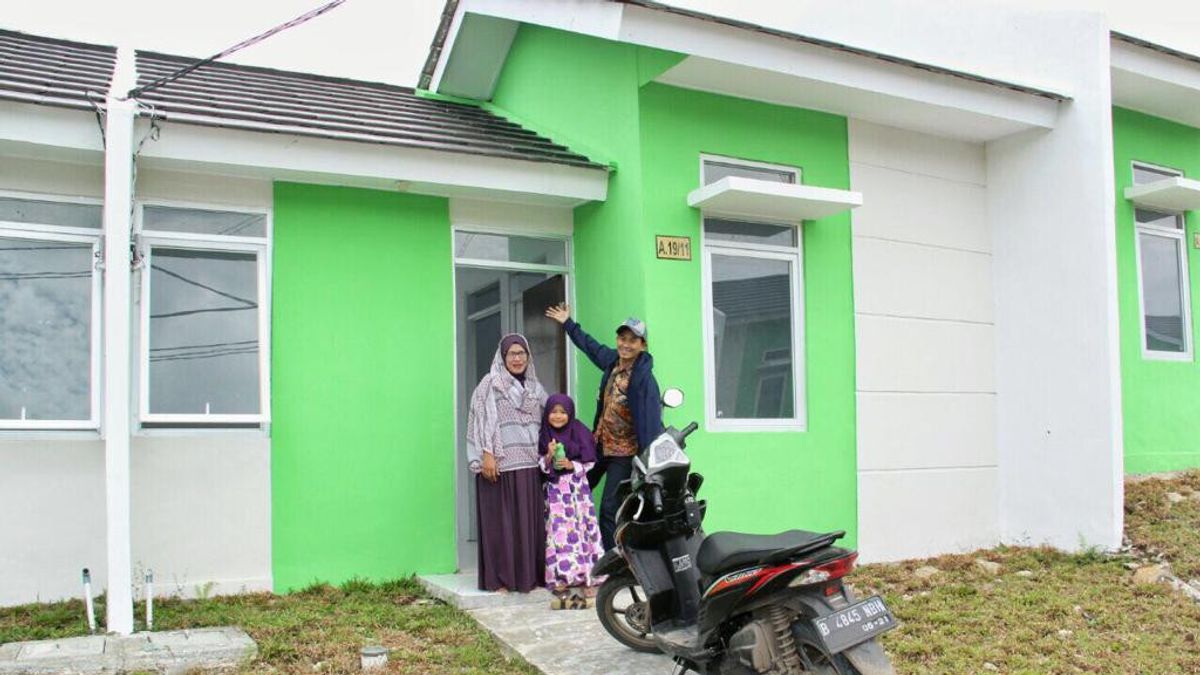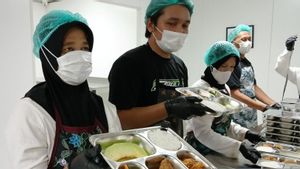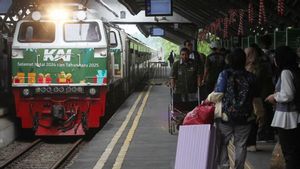JAKARTA - The existing policies and programs for housing financing or assistance are considered to have not answered the challenges of the high need for housing for low-income people (MBR) and the affordability of low-income housing for low-subsidized housing.
It is recorded that up to 2019 there are 11 million households living in unfit for habitation and young households who still do not have a house. Director General of Public Works and Housing Infrastructure Financing Eko D Heripoerwanto said that currently his party continues to strive to increase the affordability of housing needs by preparing various policies and programs for convenience and / or housing financing assistance to MBR.
Several housing finance assistance programs that are currently running include the Housing Financing Liquidity Facility (FLPP), Interest Difference Subsidy (SSB), Housing Advance Assistance Subsidy (SBUM), and Savings-Based Housing Financing Assistance (BP2BT).
"Throughout 2015-2018, the Ministry of Public Works and Public Housing has distributed 216,660 units of FLPP assistance and 558,848 units of SSB assistance. In 2019, as of 23 December 2019, the distribution of FLPP assistance was 77,564 units and SSB assistance was 99,907 units, "he said in Jakarta, December 26.
In 2020, the government has allocated a budget for FLPP of IDR 11 trillion to facilitate 102,500 housing units, IDR 3.8 billion SSB to be used for contract payments in the previous years, IDR 600 billion SBUM to facilitate 150,000 housing units. Meanwhile, Savings-Based Housing Financing Assistance (BP2BT) amounting to Rp. 13.4 billion to facilitate 312 housing units.
The target, as happened this year, can be increased according to market capacity to a maximum of approximately 50,000 units. This is because BP2BT comes from PHLN, whose increase in output and budget targets does not require DPR approval.
For information, based on the status of 23 December 2019, currently there are 19 Housing Developer Associations and 13,618 Housing Developers who have been registered in the Developer Registration Information System Management (SIRENG). SIRENG is the forerunner to the application of accreditation and registration of housing developer associations as well as certification and registration of housing developers (ARSAP4) as stipulated in the Regulation of the Minister of PUPR Number 24 / PRT / M / 2018, where all developers must be accredited and registered and all developer associations must be certified and registered.
Property observer, Panangian Simanungkalit said, the need for funds for housing subsidies for low-income people (MBR) must be increased so that the government's target in the One Million Houses Program (PSR) can be achieved.
Apart from increasing the budget, he said, the government was also asked to simplify the bureaucracy of licensing and the management of housing financing for subsidized housing.
"Currently, subsidized housing developers start screaming after the government subsidized funds in the form of FLPP 2019 quota have run out. The impact of the quota exhaustion has made developers unable to carry out housing loan agreements (KPR)," said Panangian as quoted by Investor Daily.
Chairman of the DPD Association of Housing and Public Housing Developers (Himperra) DKI Jakarta, Aviv Mustaghfirin said, the majority of developers, namely 80% are subsidized housing developers and have started screaming and confusion because the quota for FLPP subsidized homes has run out. "Meanwhile, the solution is not clear," said Aviv.
According to Aviv, the rules for subsidized housing have been very strict from the government. Houses that are on the KPR to consumers are ready-made and ready to use. Currently, when it is finished and there are consumers, they fail to sign a KPR because the quota runs out.
"In fact, the developer has spent cash flow of funds for building, employee salaries, contractor salaries, and also buying land. But suddenly he couldn't get into the KPR because there was no budget. Of course the developer screamed because of this, "he said.
He hopes that the government, both the Ministry of Public Works and Public Housing (PUPR) as the technical implementer and also the Minister of Finance and banks, will help developers and find solutions. This is so that the developers do not stop in the middle of the road considering that if over time the developers can scream because they run out of funds.
The English, Chinese, Japanese, Arabic, and French versions are automatically generated by the AI. So there may still be inaccuracies in translating, please always see Indonesian as our main language. (system supported by DigitalSiber.id)









